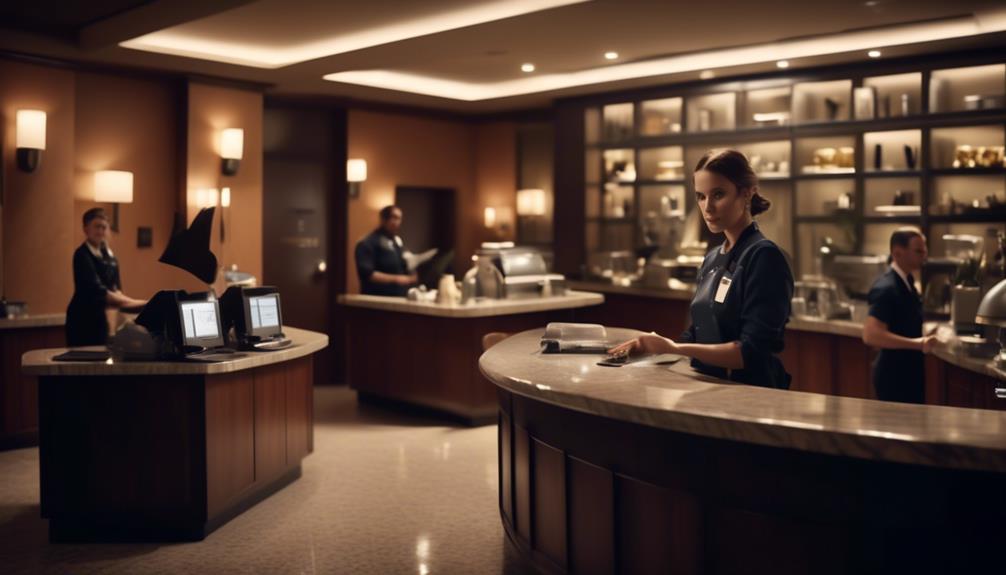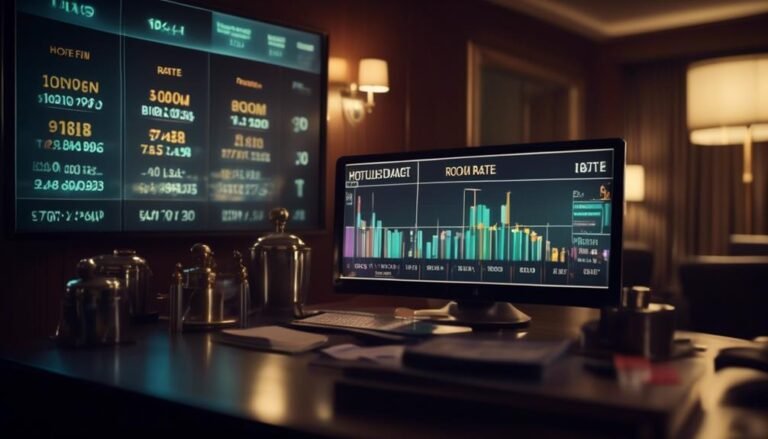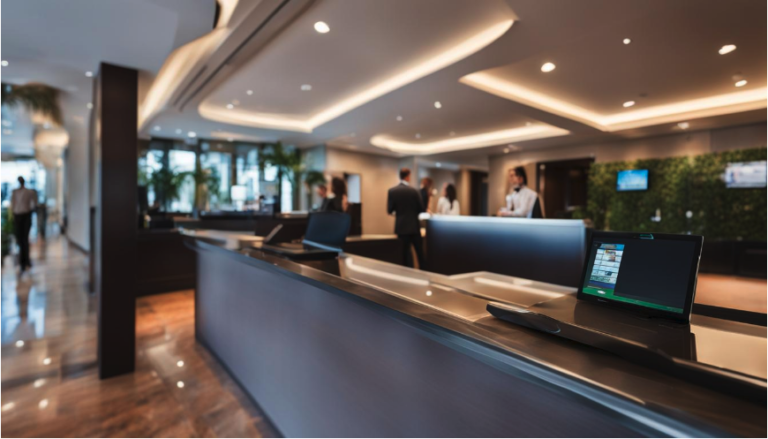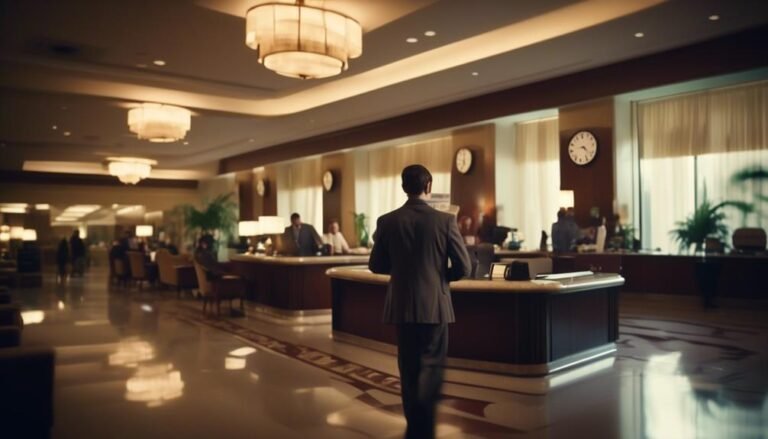Strategies for Reducing Operational Costs in Hotels
In an industry where operational costs can significantly impact the bottom line, the quest for efficiency and cost-effectiveness is paramount. With the aim of maintaining quality service while maximizing profitability, hoteliers are continually seeking strategies to reduce operational costs.
From energy efficiency measures to innovative procurement tactics and the implementation of technology solutions, there is a myriad of approaches that hotels can undertake to achieve this goal. These strategies not only hold the potential to bolster the financial health of a hotel but also contribute to sustainability and improved guest experiences.
Key Takeaways
- Implementing energy efficiency measures such as using smart thermostats and conducting regular energy audits can help hotels optimize energy usage and reduce heating and cooling costs.
- Cost-effective procurement tactics like negotiating contracts with suppliers, building strong supplier relationships, and optimizing operational costs can lead to substantial savings for hotels.
- Streamlining staff scheduling by using data-driven analysis, labor forecasting, and automated scheduling systems can help hotels optimize staffing levels and improve operational efficiency.
- Implementing technology solutions such as revenue management software, dynamic pricing algorithms, data analytics, and digital marketing automation tools can help hotels optimize pricing strategies, streamline marketing processes, and reduce costs.
Energy Efficiency Measures
Implementing energy efficiency measures is essential for hotels to reduce operational costs and minimize environmental impact.
Smart thermostats are a key technology that hotels can utilize to optimize energy usage. These devices can automatically adjust room temperatures based on occupancy, leading to significant reductions in heating and cooling costs. Additionally, smart thermostats provide data insights that enable hotel management to identify patterns of energy consumption and make informed decisions to further enhance efficiency.
Conducting regular energy audits is another crucial aspect of energy efficiency measures for hotels. These audits involve a comprehensive assessment of the hotel's energy consumption patterns, equipment efficiency, and insulation. By identifying areas of energy wastage and inefficiencies, hotels can implement targeted solutions to improve overall energy performance.
Energy audits also provide a baseline for measuring the impact of energy efficiency initiatives over time, allowing hotels to track their progress and make adjustments as needed.
Cost-Effective Procurement Tactics
After establishing a foundation of energy efficiency measures through meticulous audits and the implementation of smart thermostats, hotels can further optimize their operational costs by employing cost-effective procurement tactics.
One of the most impactful cost-effective procurement tactics is negotiating contracts with suppliers. By negotiating favorable terms and prices, hotels can significantly reduce their procurement costs, leading to substantial savings.
Additionally, building strong supplier relationships is crucial for cost-effective procurement. Maintaining open communication channels and fostering mutually beneficial partnerships can result in preferential pricing, better terms, and access to higher quality products and services.
Streamlining Staff Scheduling
To enhance operational efficiency and reduce labor costs, hotels can optimize their staff scheduling through data-driven analysis and strategic workforce management. Shift optimization involves identifying peak and off-peak periods based on historical data and adjusting staff schedules accordingly.
Labor forecasting, utilizing factors such as historical occupancy rates, seasonal trends, and upcoming events, allows hotels to align staffing levels with anticipated demand.
Implementing automated scheduling systems can streamline the process by efficiently assigning shifts based on forecasted demand and employee availability. These systems can also help in identifying overstaffing or understaffing situations, enabling proactive adjustments to optimize labor costs while maintaining service quality.
Moreover, cross-training employees to handle various roles can provide flexibility in scheduling, allowing for better adaptation to fluctuating demands without the need for additional staff.
Additionally, monitoring and analyzing key performance indicators such as labor cost per occupied room or revenue per available room can provide insights into the effectiveness of scheduling strategies.
Implementing Technology Solutions
With the advancement of technology, hotels can leverage innovative solutions to streamline operations and optimize efficiency, ultimately reducing operational costs. Implementing technology solutions can significantly impact a hotel's bottom line through improved revenue management and enhanced digital marketing strategies.
Here's how hotels can benefit from integrating technology into their operations:
- Revenue Management
- Utilizing revenue management software can help hotels optimize pricing strategies based on demand fluctuations, competitor pricing, and other market variables.
- Implementing dynamic pricing algorithms can maximize room revenue by adjusting prices in real-time to match demand, leading to increased profitability.
- Digital Marketing
- Leveraging data analytics and customer relationship management (CRM) software can enable hotels to target specific customer segments with personalized marketing campaigns, leading to higher conversion rates and increased revenue.
- Implementing digital marketing automation tools can streamline marketing processes, reduce manual effort, and improve the effectiveness of marketing initiatives, ultimately leading to cost savings and higher returns on investment.
Waste Reduction Strategies
Leveraging waste reduction strategies is essential for hotels aiming to enhance operational efficiency and minimize unnecessary costs. Conducting a waste audit is a crucial first step in identifying the key areas where waste is generated within the hotel operations. By analyzing the findings of a waste audit, hotels can pinpoint opportunities for waste reduction and implement targeted solutions.
Recycling programs play a pivotal role in waste reduction strategies for hotels. By segregating and recycling materials such as paper, glass, plastic, and metal, hotels can divert a significant amount of waste from landfills, thereby reducing waste management costs and contributing to environmental sustainability.
Moreover, implementing a comprehensive recycling program can also lead to potential cost savings through the reduction of waste disposal fees and the generation of revenue from the sale of recyclable materials. Additionally, hotels can explore partnerships with local recycling facilities or waste management companies to streamline their recycling efforts.
Conclusion
In conclusion, implementing strategies for reducing operational costs in hotels is akin to navigating a complex maze, requiring careful planning and execution.
By employing energy efficiency measures, cost-effective procurement tactics, streamlined staff scheduling, technology solutions, and waste reduction strategies, hotels can successfully navigate this maze and achieve significant cost savings.
These strategies are essential for hotels to thrive in a competitive industry and ensure long-term sustainability.







